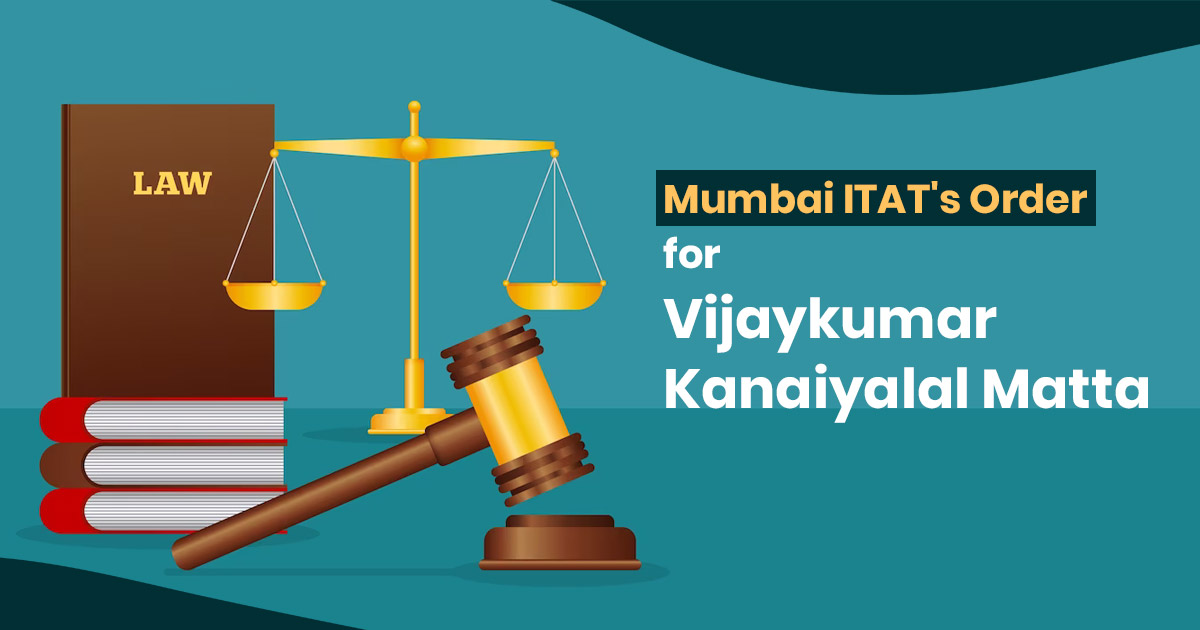
The Income Tax Appellate Tribunal (ITAT), the Mumbai bench recently made a decision to remove an addition made by the assessing officer on an unexplained investment under Section 69 of the Income Tax Act, 1961 without the relevant application of mind.
The appellant assessee, Vijaykumar Kanaiyalal Matta, had paid Rs. 1 crore for a property in the Argent Constructions project named “Silver Arch,” despite not being a resident of India. As a result of this unauthorised investment in the bank account, the assessing officer included it in the assessment. In order to challenge the decision of the Commissioner of Income Tax (Appeals) to uphold the addition made by the Assessing Officer (AO), the assessee filed an appeal.
The counsels representing the assessee, Tejveer Singh, Manisha Rawat, and Dharti Mehta, put forth arguments stating that since the assessee resides in Muscat and does not have any taxable income in India, there is no requirement for him to file an income tax return in India. The notice under Section 148 of the Income Tax Act was issued to the assessee solely based on a statement made by a third party during search proceedings, and the reasons provided for reopening the assessment seemed to lack proper consideration by the Assessing Officer (AO).
Furthermore, it was argued that the assessment was reopened without any substantial evidence and the reasons merely relied on information obtained from the Investigation Wing, making the reopening illegal.
The counsel for the revenue, Abhishek Kumar Singh, contended that the assessee had not taken advantage of the opportunity for cross-examination and failed to establish that no money was paid by him. The statement provided detailed information about the amount received from the assessee, along with dates and a breakdown of the amounts received on each date.
Read also: ITAT Instructs Commissioner to Adjudicate the Manual Appeal, Assessee Doesn’t Know e-Filing Process
The bench noted that if the investment had been made using unaccounted funds from a source in India, whether received or deemed to be received in India, accrued or arising in India, or deemed to accrue or arise in India, then the provisions of Section 69 of the Income Tax Act would come in effect. Consequently, the assessee would qualify for treaty benefits under source-based taxation for his income received in Muscat as he is a non-resident Indian (NRI).
The two-member bench comprising Vikas Awasthy (Judicial Member) and Amarjit Singh (Accountant Member) allowed the assessee’s appeal concluding that the addition made under Section 69 of the Income Tax Act due to an unexplained investment lacked support so it is liable to be removed.
| Case Title | Vijaykumar Kanaiyalal Matta |
| Citation | ITA No.52/MUM/2020 (A.Y.2013-14) & ITA No.53/MUM/2020 (A.Y.2014-15) |
| Date | 31.05.2023 |
| Appellant by | Shri Tejveer Singh, Advocate, Ms Manisha Rawat & Dharti Mehta |
| Respondent by | Shri Abhishek Kumar Singh, Sr. AR |
| Mumbai ITAT | Read Order |









